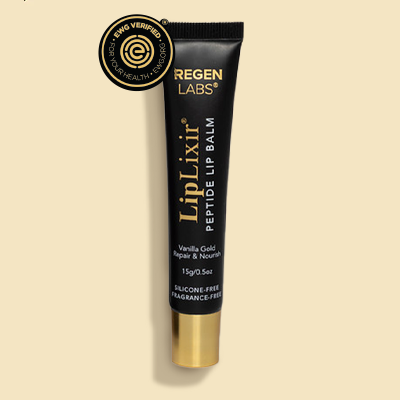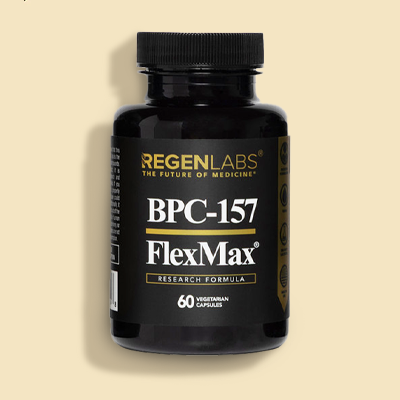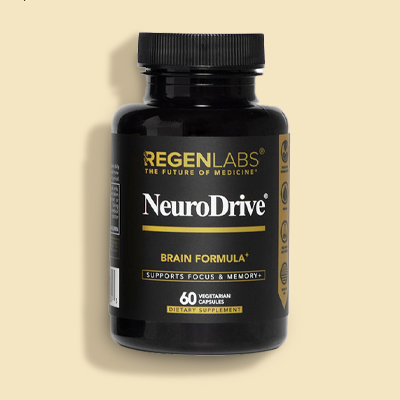Myostatin is a factor in human growth that is active in our bodies pre-birth and continues to be active throughout our entire lifetime. Also known as GDF-8 (Growth and Differentiation Factor 8), healthy myostatin levels prevent muscle mass from growing too large by inhibiting growth.
This state of inhibited muscle growth is a health defense within our bodies. But under the wrong conditions, it can become too pronounced, constraining the growth of healthy muscle mass and preventing the gains we seek in our workouts.
RELATED: BPC - 157 Peptide Therapy Benefits
In addition, studies have shown that our myostatin levels increase as we age, making it more difficult to grow and maintain muscle mass. At the same time, though, myostatin deficiency can lead to a severe overgrowth in muscle mass that is unhealthy and can be debilitating. So myostatin levels are something that warrants a discussion with a doctor if you have concerns. When speaking with a doctor, here are some ideas and alternatives others have used to control myostatin levels to achieve muscle growth.
4 Ways To Control Myostatin Levels and Gain Muscle
1. Exercise
Exercise is one of the safest ways of reducing myostatin levels.
The National Institutes of Health’s US National Library of Medicine has published studies showing that aerobic exercise reduces myostatin levels in both the muscle tissue and the bloodstream.
An additional benefit of exercise is that it improves insulin resistance. In the same study, Dr. Hittel, et. al. concluded that “…myostatin is the causal pathway of acquired insulin resistance with physical inactivity.”
Need More Info? If you have had trouble with pre-workout supplements in the past, you're not alone. Check out this article on how to beat the pre-workout blues HERE.
2. Prescription Myostatin Inhibitors
Prescription myostatin inhibitors are pharmaceutical treatments designed to block the body’s production of myostatin. These treatments are emergent and still considered experimental, so few options exist.
Pfizer is currently in clinical trials with a new drug called Stamulumab; certain patients may be eligible to participate in the trials and your doctor would be the place to start.
RELATED: 8 Peptides for Muscle Growth
3. Nonprescription Myostatin Inhibitors
Prior to considering pharmaceutical treatments, you may be able to reduce myostatin levels using nonprescription supplements and natural ingredients.
Published scientific studies have concluded that epicatechin (found in Regen Labs’ FlexMax Peptide Muscle Builder) reduces myostatin levels. This is available without a prescription and has no known side effects.
4. Gene Therapy
Gene therapy is the practice of injecting certain modifiers into your cells to enhance your body’s natural genetic responses to certain conditions. Some promising results have been achieved using the activin-binding protein Follistatin to bioneutralize certain elements of the TGF (transforming growth factor) and how they interact with TGF-beta receptors.
Gene therapy in this area is new and still in development, so contact a doctor with any questions you have.
Each of these options shows promise and each has medical pros and cons, so speak with a doctor about your questions. Your doctor can help you determine what conditions may be inhibiting your muscle growth and can help you select the best options for you.
There is a lot to think about – we get it. If you have questions about your myostatin levels or any of the conditions discussed here, Regen Labs has options for you. All Regen Labs products support the body’s natural systems for a healthy brain, skin, muscle, and sexual health.
Without toxins or synthetic chemicals, Regen Labs products contain research-proven ingredients to boost the body’s natural ability to be healthy.
RegenLabs FlexMax™ contains proven ingredients shown to improve workout performance, hypertrophy
Let’s talk! If you have questions, we would love to connect. Contact us today!
What are your other concerns about muscle gain or growth that you want us to cover? Let us know in the comments section below!
Up Next:











